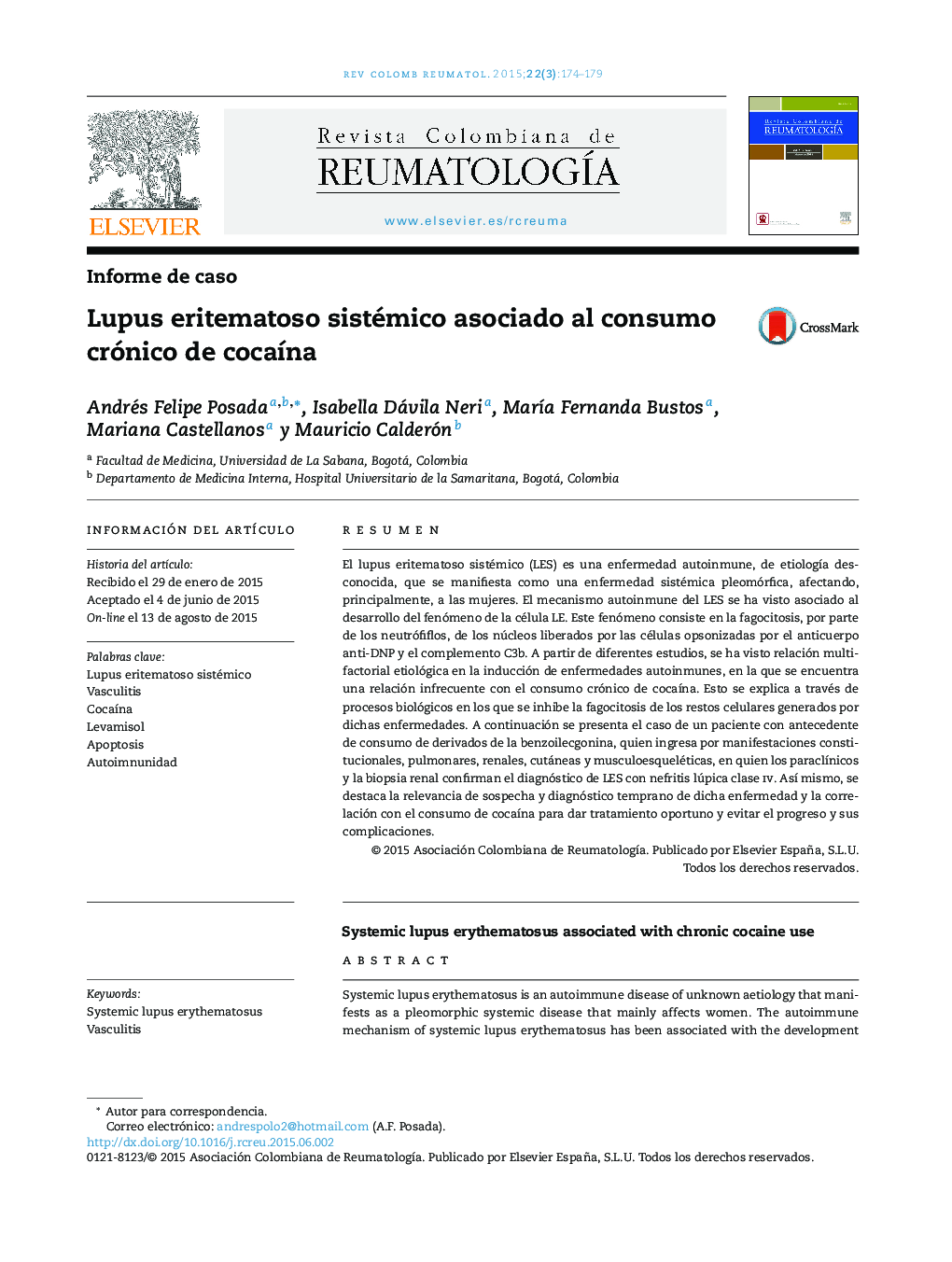| Article ID | Journal | Published Year | Pages | File Type |
|---|---|---|---|---|
| 3385410 | Revista Colombiana de Reumatología | 2015 | 6 Pages |
ResumenEl lupus eritematoso sistémico (LES) es una enfermedad autoinmune, de etiología desconocida, que se manifiesta como una enfermedad sistémica pleomórfica, afectando, principalmente, a las mujeres. El mecanismo autoinmune del LES se ha visto asociado al desarrollo del fenómeno de la célula LE. Este fenómeno consiste en la fagocitosis, por parte de los neutrófiflos, de los núcleos liberados por las células opsonizadas por el anticuerpo anti-DNP y el complemento C3b. A partir de diferentes estudios, se ha visto relación multifactorial etiológica en la inducción de enfermedades autoinmunes, en la que se encuentra una relación infrecuente con el consumo crónico de cocaína. Esto se explica a través de procesos biológicos en los que se inhibe la fagocitosis de los restos celulares generados por dichas enfermedades. A continuación se presenta el caso de un paciente con antecedente de consumo de derivados de la benzoilecgonina, quien ingresa por manifestaciones constitucionales, pulmonares, renales, cutáneas y musculoesqueléticas, en quien los paraclínicos y la biopsia renal confirman el diagnóstico de LES con nefritis lúpica clase iv. Así mismo, se destaca la relevancia de sospecha y diagnóstico temprano de dicha enfermedad y la correlación con el consumo de cocaína para dar tratamiento oportuno y evitar el progreso y sus complicaciones.
Systemic lupus erythematosus is an autoimmune disease of unknown aetiology that manifests as a pleomorphic systemic disease that mainly affects women. The autoimmune mechanism of systemic lupus erythematosus has been associated with the development of the lupus erythematosus (LE) cell phenomenon. This phenomenon is primarily attributed to the development of phagocytosis, produced by the neutrophils (of the nuclei released by cells that are opsonised by anti-DNP antibodies and C3b. A multifactorial aetiological relationship has been observed in various studies and the induction of autoimmune diseases, such as the uncommon relationship with the chronic abuse of cocaine. This can be explained through biological processes, where phagocytosis of the rests of cells generated by these diseases is inhibited.The case is presented of a male patient with history of consumption of benzoylecgonine derivatives and presented with constitutional, lung, kidney, skin and musculoskeletal manifestations. The laboratory results and renal biopsy confirmed the diagnosis of systemic lupus erythematosus with nephritis lupus class IV. Emphasis is placed on the importance of the suspicion and early diagnosis of the disease, and correlation with the consumption of cocaine in order to give early treatment, as well as preventing its progression and complications.
